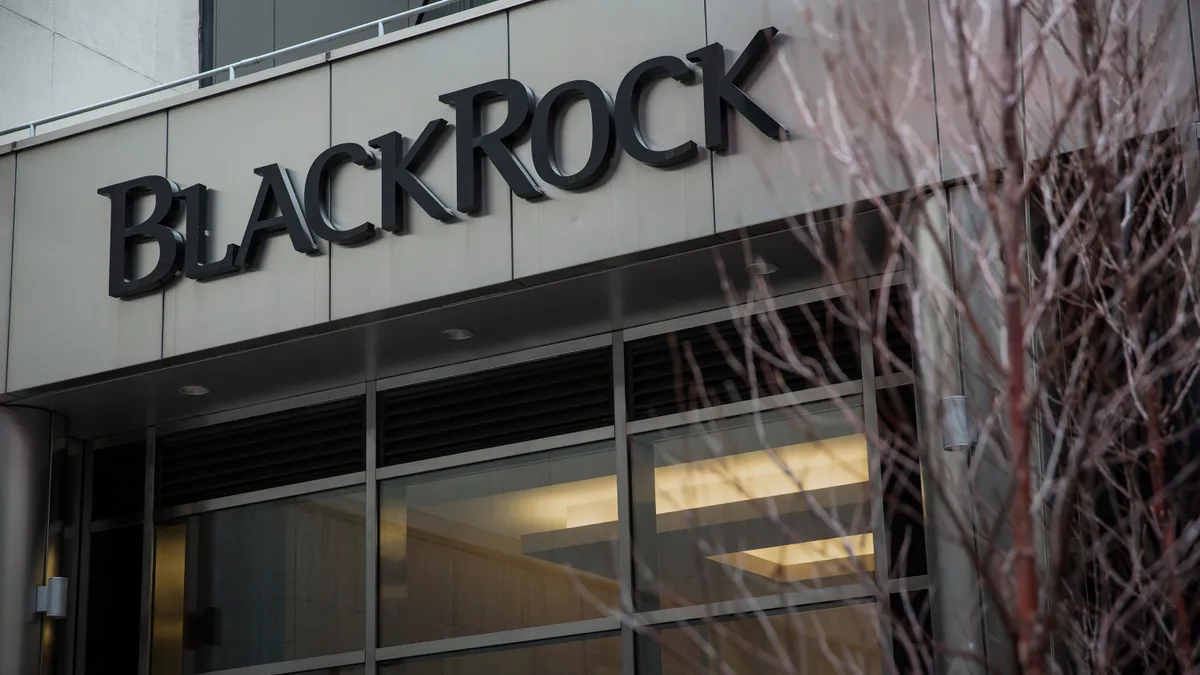The waning days of 2024 showed several regulators in time-crunch mode, aiming to resolve unsettled agenda items and tie loose ends.
The Office of the Comptroller of the Currency, for example, issued enforcement actions in December against USAA and Bank of America. The Consumer Financial Protection Bureau pushed final rules on overdraft fees and open banking and sued three big banks and the peer-to-peer payments platform Zelle. And the Federal Reserve took steps to tweak its stress-testing process.
Amid all of that activity, the first financial regulatory battle of 2025 appears to be taking shape over how to police passive investing by asset managers.
The Federal Deposit Insurance Corp. reached an agreement Dec. 27 with Vanguard prohibiting the asset manager from influencing the nomination of directors to the boards of banks in which the company holds a stake of 10% or more. Vanguard can, however, continue to vote on shareholder resolutions pertaining to those banks. The agreement applies to FDIC-regulated banks and holding companies but not big banks regulated by the Federal Reserve.
With Vanguard more in check, the FDIC is pressuring fellow asset manager BlackRock to sign a similar agreement by Jan. 10. Less than an hour after the Vanguard deal was made public, BlackRock received a proposal from the FDIC with “substantively the same” wording, Reuters reported, citing a source familiar with the matter.
Two FDIC board members in particular – Republican Jonathan McKernan and CFPB Director Rohit Chopra, a Democrat – pushed, throughout 2024, for tougher guidelines governing passivity agreements.
The nation’s three largest asset managers – Vanguard, BlackRock and State Street – have built up passive stakes in banks as investors plow money into index funds that contain bank stock. Index funds are already required to be passive investors. But fund managers like Vanguard and BlackRock have been allowed to self-certify that they will remain passive. (Different rules apply to State Street because it already operates as a bank.)
The deal Vanguard forged with the FDIC last week forces the asset manager to file a passivity agreement, meaning the FDIC will no longer simply take Vanguard at its own word.
The FDIC had given Vanguard and BlackRock until Dec. 31 to sign passivity agreements or risk facing legal fights. That deadline itself was pushed back twice from Oct. 31. BlackRock argued in an October letter that requiring asset managers to get FDIC approval before taking a stake of 10% or more in a bank would “disrupt the flow of capital to the economy and undermine bank safety and soundness.”
Such agreements would duplicate oversight by the Fed, raise compliance costs and make bank stocks less desirable investments, BlackRock and investment industry groups said.
BlackRock in early December pitched its own version of a passivity agreement to the FDIC – without the compliance measures to which Vanguard agreed last week.
McKernan, for his part, called the Vanguard deal a “good step in the right direction,” saying the pact “adds specificity as to what it means to be a passive investor in FDIC-supervised banks or their holding companies.”
“More importantly,” he said Dec. 27, it “enhances the FDIC’s ability to monitor and confirm that passivity.”
“It will be critically important that the FDIC periodically assess how Vanguard’s front-line business units, independent risk function and internal audit function monitor, test and audit its compliance with its related policies and procedures,” he said.
Vanguard last week said it “is built around passive investing and has long been committed to working constructively with policymakers to ensure that passive means passive.”
“This agreement with the FDIC is another example and recognition of that ongoing commitment,” the asset manager said.
Chopra on Monday, in reference to the Vanguard deal and its potential effect on competitors, said, “We know that chief executive officers and board members of large companies carefully watch the policy pronouncements of these mega-owners."
"If a large asset manager is truly passive as it claims, it should have no problem complying," Chopra added.
BlackRock and the FDIC declined to comment on the matter this week.
"BlackRock does not exercise control over FDIC-supervised institutions, nor does it seek to," Benjamin Tecmire, the asset manager’s head of regulatory affairs, said in the October letter.
Among the influences the FDIC is looking to curtail with its passivity agreement is any potential attempt by investors to steer banks away from financing projects tied to fossil fuels.
The FDIC did not specify what consequences BlackRock may face if it doesn’t meet the Jan. 10 deadline. BlackRock owns a stake of more than 10% in 39 community and regional banks in the U.S., according to Reuters.
McKernan on Dec. 27 cited a “growing body of academic work and other evidence raising doubt about whether … index fund complexes are truly passive.” That reiterates concerns the FDIC board member raised in January 2024 and repeatedly thereafter.
Chopra issued a proposal to allow the FDIC to review buy-ups of bank shares by asset managers.
"The FDIC's existing rules include an odd provision that, in practice, eliminates the agency's review of changes in control for many covered transactions," he said. "It is highly inappropriate for the FDIC to abdicate the responsibility Congress entrusted to us to safeguard the ownership and control of the banks we supervise."
Another FDIC board member – Michael Hsu, the OCC’s acting chief – said the regulator needed more information before making changes to passivity agreements.
“The distinctions between proxy voting, stewardship, and control can be blurry," Hsu said in April, according to American Banker. "Opinions differ as to the impact and effectiveness of passivity mechanisms, such as mirror voting and choice voting."






















